
Fostering scientific communities in Latin America to strengthen single cell genomics: more voices from the region
Part two: Championing improved research into diverse populations through regional training initiatives.
We know that genomics approaches, and more specifically, single cell technologies offer significant value for researchers studying the mechanisms of disease prevalent in Latin American populations. However, gaining access to essential training on using tools and technologies most effectively to generate more insightful analysis of admixed genetic data, continues to be challenging across the region.
Connecting investigators with training opportunities that build skills and foster regional collaborative networks, is critical for mobilising genomics across Latin America.
Our global learning and training activities seek to bridge the gaps in genomics knowledge and skills capacity present in Latin America, by enabling access to the tools and facilities necessary to learn, through our established partnerships with regional institutions and expert trainers. Our overarching goal is providing equitable access to training in the application of genomics tools and techniques for genome data analysis, serving the diverse populations in the region.
In July, we published the first part of our interview with the grant writing champions from our 2023 Single Cell Biology course, held in Rio de Janeiro, Brazil, using the incredible facilities offered by our partners at the Instituto Nacional de Câncer (INCA).
In the second part of this feature, focusing on our collaborative training activities in the region, we hear more voices from our 2023 participants: sharing their experiences both during and after completing the training, and the importance of these newly acquired skills for developing their current research projects.
If you have ever wondered how genomics training might evolve your career, or been curious about what you might get out of attending a global conference, this article will answer all those questions and more.
Participating in last year’s Single Cell Genomics course in Rio de Janeiro was an incredible experience for me.
Caroline Poubel, International Agency for Cancer Research (IARC)
Meet the interviewees
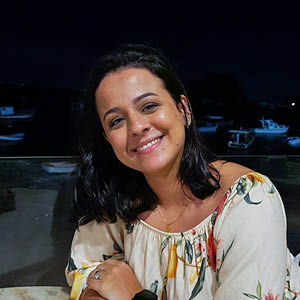 Caroline Poubel has a PhD in Oncology from the Brazilian National Cancer Institute (INCA) and is currently working as a postdoctoral scientist at the International Agency for Cancer Research (IARC), working under Dr Zdenko Herceg in the Epigenomics and Mechanisms branch.
Caroline Poubel has a PhD in Oncology from the Brazilian National Cancer Institute (INCA) and is currently working as a postdoctoral scientist at the International Agency for Cancer Research (IARC), working under Dr Zdenko Herceg in the Epigenomics and Mechanisms branch.
Her research , funded by Children with Cancer UK, focuses on identifying epigenetic changes in regulatory regions associated with paediatric acute lymphoblastic leukaemia (ALL). She has extensive experience in molecular biology and bioinformatics, particularly in studying molecular alterations in acute leukemias. Caroline is a specialist in R and bash programming, big data, and data analysis.
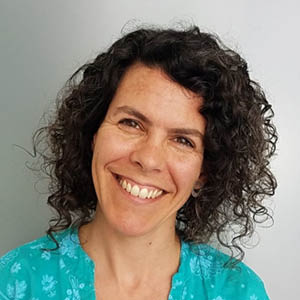
Luisa Berná has a PhD in Life Science from the Open University – Stazione Zoologica Anton Dohrn and is currently working as a Senior Research Fellow at Institut Pasteur de Montevideo and as an Assistant Professor at Facultad de Ciencias, Universidad de la República, Uruguay.
How has participation at last year’s Single Cell Genomics course benefitted your work and career so far?
Caroline: It was a fantastic opportunity to meet amazing people and build a solid foundation of knowledge in the field, thanks to the lectures and classes from leading experts. One of the highlights for me was the combination of wet lab and bioinformatics training, which fit perfectly with my career path.
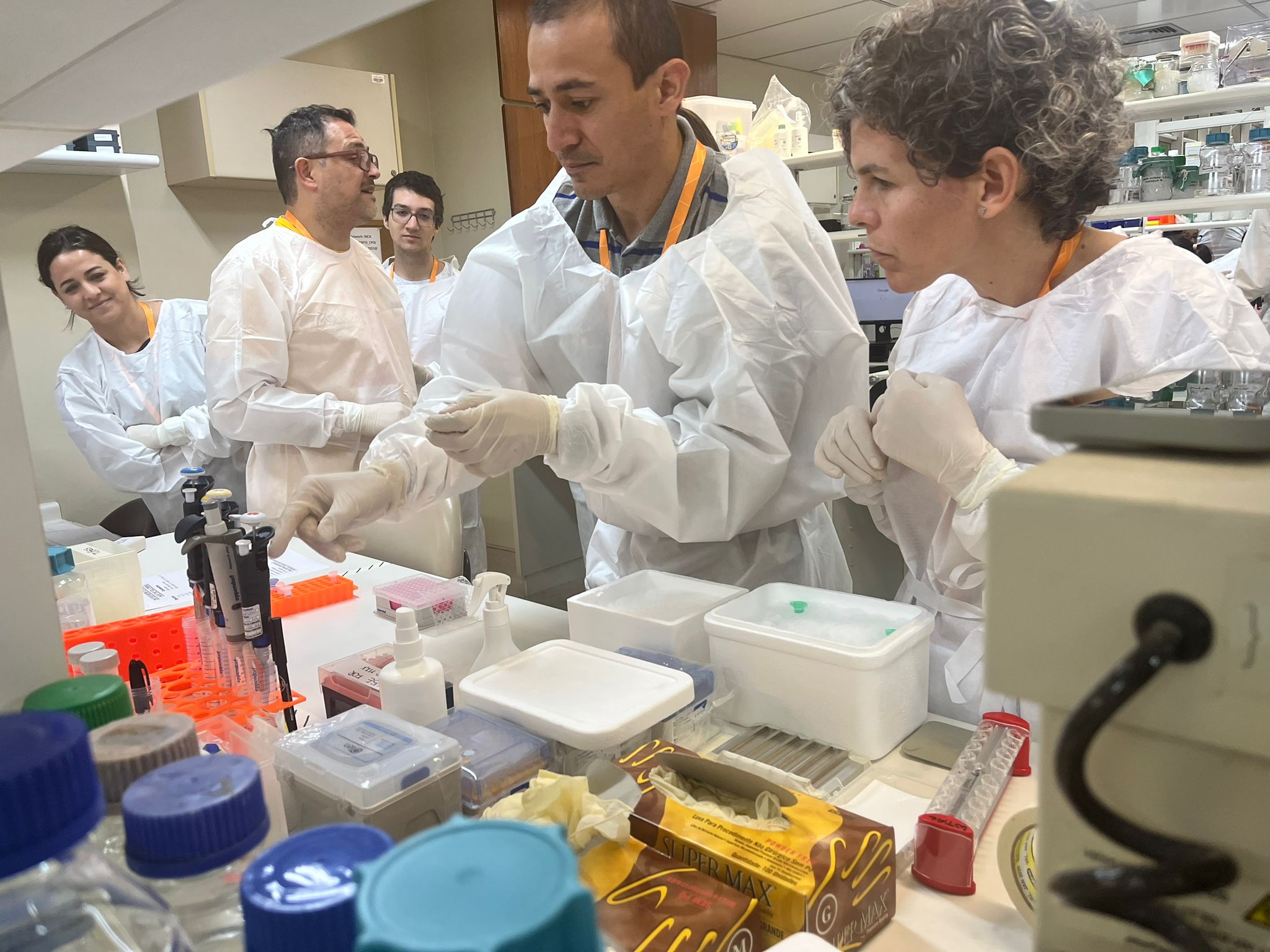
I completed my PhD the year before the course, and was participating in my first postdoctoral research position, specialising in data analysis, particularly bulk omics data. The course opened up new perspectives for me and helped me think of new hypotheses for my work. It showed me different analytical possibilities, which are invaluable when you’ve been in research for a long time. Staying updated and knowing about new applications to answer critical questions is crucial.
My research doesn’t currently focus on single cell techniques, but this experience has undeniably enriched my knowledge for the future. The discussions after the course, along with the new collaborations and the projects I’ve started this year, have been greatly influenced by the insights I gained.
I can confidently say that the Single Cell Genomics course continues to benefit my career even now.
Caroline Poubel, International Agency for Cancer Research (IARC)
Luisa: Participating in last year’s Single Cell Genomics course provided me with the opportunity to better understand the technology, its potential applications, and essential tips for achieving better results. The course also offered computational tools for data processing, and introduced the concept of using public data to answer new questions without necessarily conducting experiments. Additionally, it connected me with people in the field who have similar interests, both from my country and across the region. I also had the chance to interact with international experts who were open to establishing collaborations, as well as offering their networks, or providing direct support themselves.
This experience has enabled me to conceive new research projects where Single Cell technology is fundamental to addressing biological questions that otherwise could not be answered.
Luisa Berná, Institut Pasteur de Montevideo
As a result, I have reached out to other labs within my institute, leading to new collaborations and the submission of proposals utilising this technology.
How has the session on grant writing supported your career?
Caroline: I must admit, I was quite apprehensive when faced with the challenge of writing a grant, but the way the course presented this session made it surprisingly enjoyable in the end.
I haven’t had the chance to put the knowledge I gained in this area into practice yet. However, winning the competition gave me a sense of confidence that has been very helpful in dealing with the challenges of this new phase of my career.
Luisa: It was a challenge that encouraged us to make an effort, but at the same time, it allowed us to consolidate the knowledge we had acquired. It enabled us to visualise the use of different single-cell approaches in the organism we were interested in. We generated a proposal that encompassed everything we wanted to do, and it was a pleasure to realise it.
As a result, we won an award to participate in the Single Cell Biology conference. What more could you ask for? This opportunity allowed us to meet researchers in person, whose articles we had been reading. It was like a dream.
Luisa Berná, Institut Pasteur de Montevideo
How was your experience presenting a poster at our Single Cell Biology conference?
Caroline: My experience presenting a poster at a global conference was highly enriching. I had the opportunity to present recent work in single-cell research, despite it being at a preliminary stage. Receiving feedback was rewarding, especially regarding the next steps for my research.
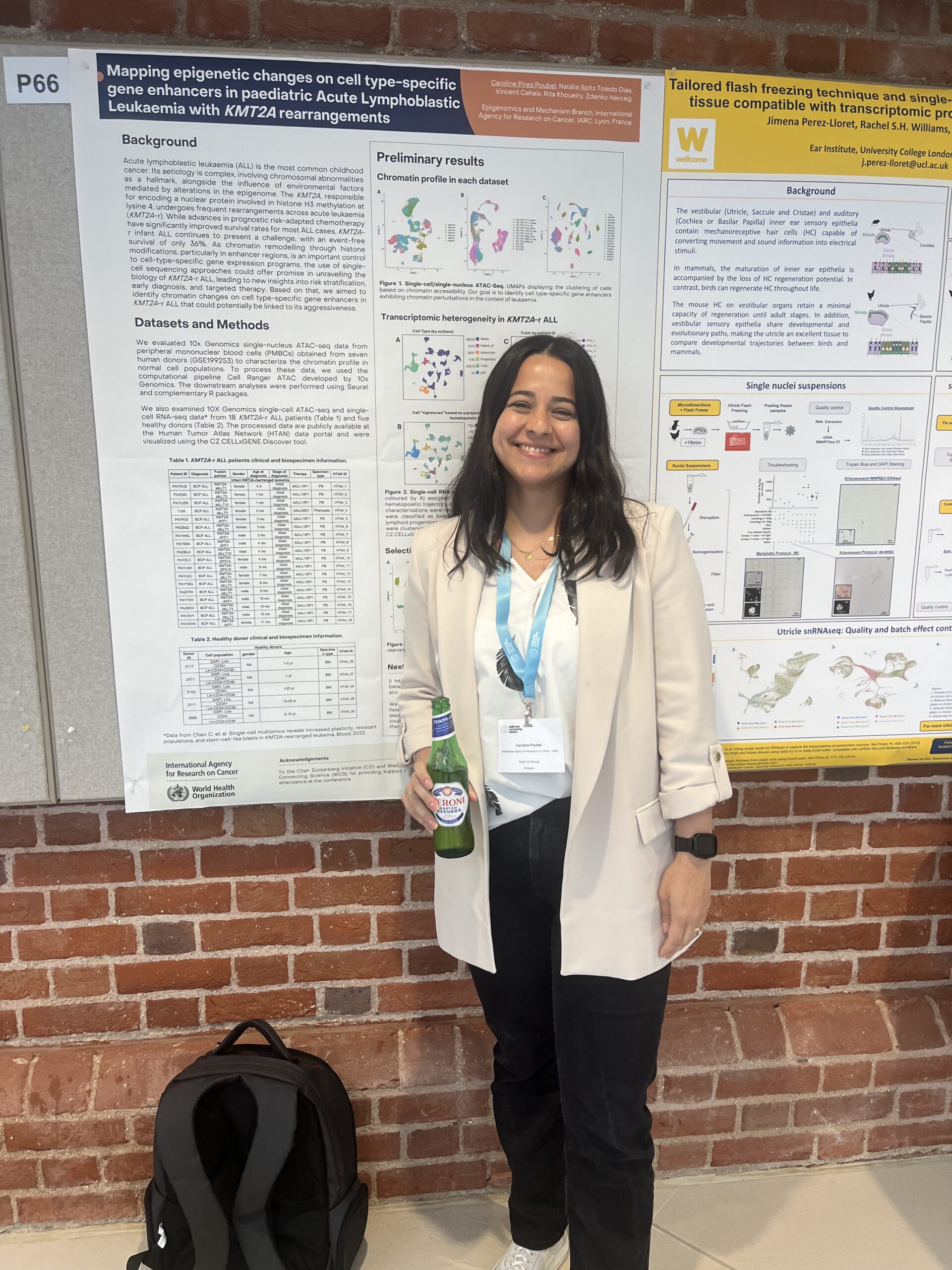
Beyond the poster presentation itself, attending the conference in person provided valuable insights that may not have arisen if I had only participated virtually.
Caroline Poubel, International Agency for Cancer Research (IARC)
Meeting people, engaging in discussions about other posters, and immersing myself in the overall atmosphere were aspects that enhanced my experience. These moments allowed me to delve deeper into the field and broaden my understanding of new possibilities and perspectives.
I am confident that my participation in the conference will help me apply the most suitable methods to test my hypothesis.
Luisa: I had the great opportunity to attend the conference in person, which is much more enriching than virtual participation in many aspects. Being there allowed me to follow presentations more closely, ask questions more dynamically, and approach speakers after their talks to provide comments or ask further questions.
The poster session enabled us to showcase our ideas and receive valuable feedback on possible solutions to our challenges. Additionally, it allowed me to establish new connections that will be highly beneficial in the future.
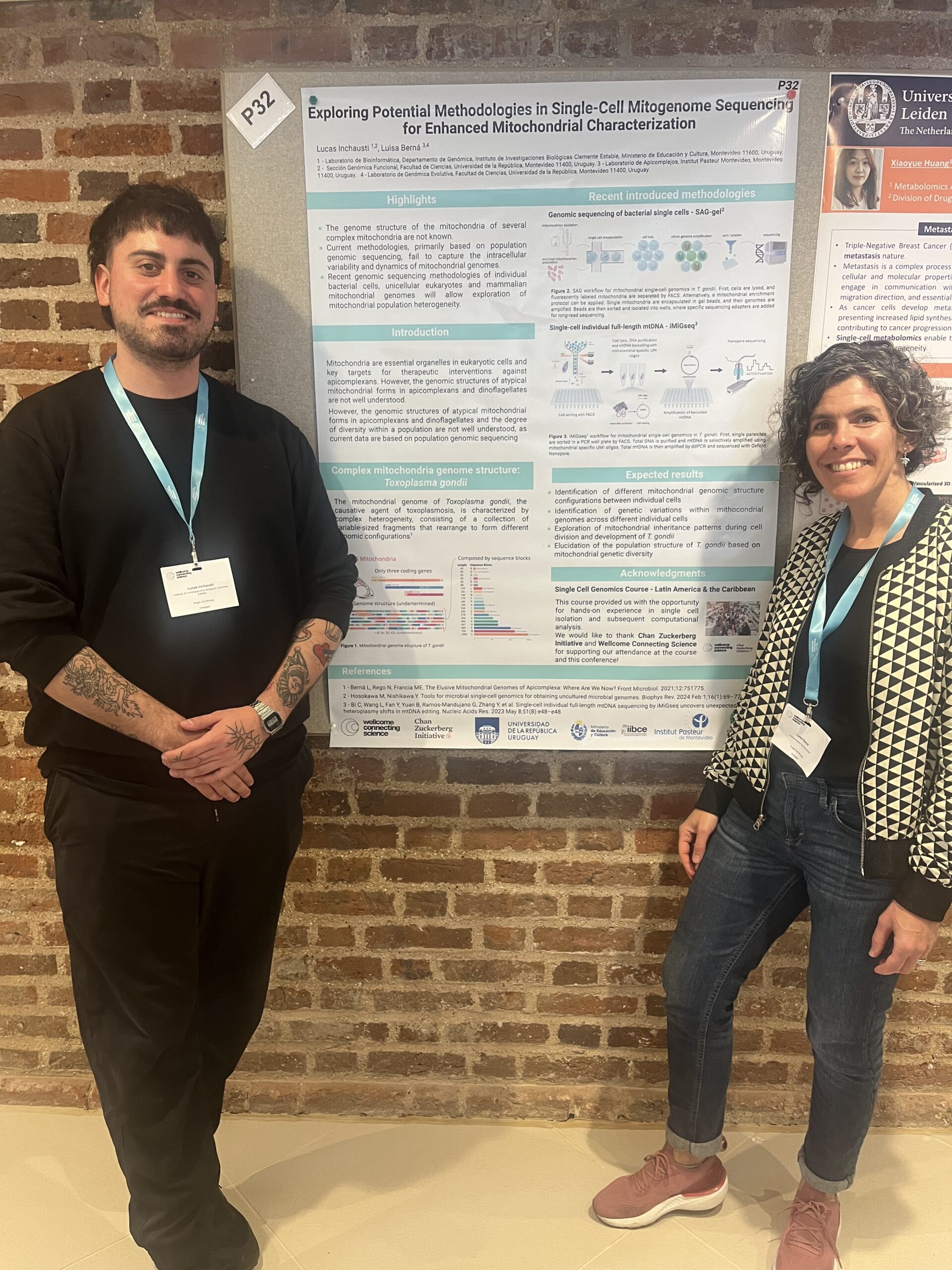
What were your highlights from attending the Single Cell Biology conference?
Caroline: Firstly, the diversity of applications for single-cell methodology. Seeing how this technology is transforming research across various fields was eye-opening.
Secondly, the discussions on bioinformatics. The details of how data is analysed at the single-cell level expanded my perspective on the potential and complexities within biological research.
Lastly, the emphasis on networking. These interactions provided a supportive environment for learning and growth.
Luisa: Firstly, the relaxed and pleasant atmosphere combined with academic rigour, creating an ideal environment for learning and discussion.
Secondly, the poster session with appetisers, which facilitated flowing conversations and networking opportunities.
Thirdly, meeting new people and building interactive networks, fostering potential collaborations and expanding my professional connections.
Has your experience with the Connecting Science programme shaped your thinking about your career and future ambitions?
Caroline: My experience with the Connecting Science programme has broadened my understanding of the possibilities in both knowledge and career. It’s incredible how a new perspective can add so much, even if it’s just in the way of thinking.
Luisa: I learned that it’s important not to be afraid to put your ideas on the table. Sharing doubts, uncertainties, and new ideas with others helps the collective, and fosters a more collaborative environment. The experience taught me that being cooperative is more beneficial than being competitive.
Has training with Connecting Science enabled you to achieve something that would have otherwise been unattainable?
Caroline: I believe the training with Connecting Science has provided me with invaluable experiences, but I’d like to highlight two that I think would have been difficult to achieve otherwise.
Firstly, the wet lab single-cell training was incredibly special. While there are many excellent online courses available, hands-on experience is irreplaceable, especially given the high cost of this technology in countries like Brazil. Having this training “at home” with experts was amazing.
Secondly, beyond the training, it’s about being seen and staying connected. It’s a network that makes knowledge applicable. For young researchers from underserved countries, being supported and encouraged by an organisation that understands the importance of being connected to other researchers is crucial.
Luisa: For me, the human connections formed after spending so many hours with people from different cultures – but with common interests – were incredibly enriching. In my case, a united and joyful group emerged, and we remain connected to this day.
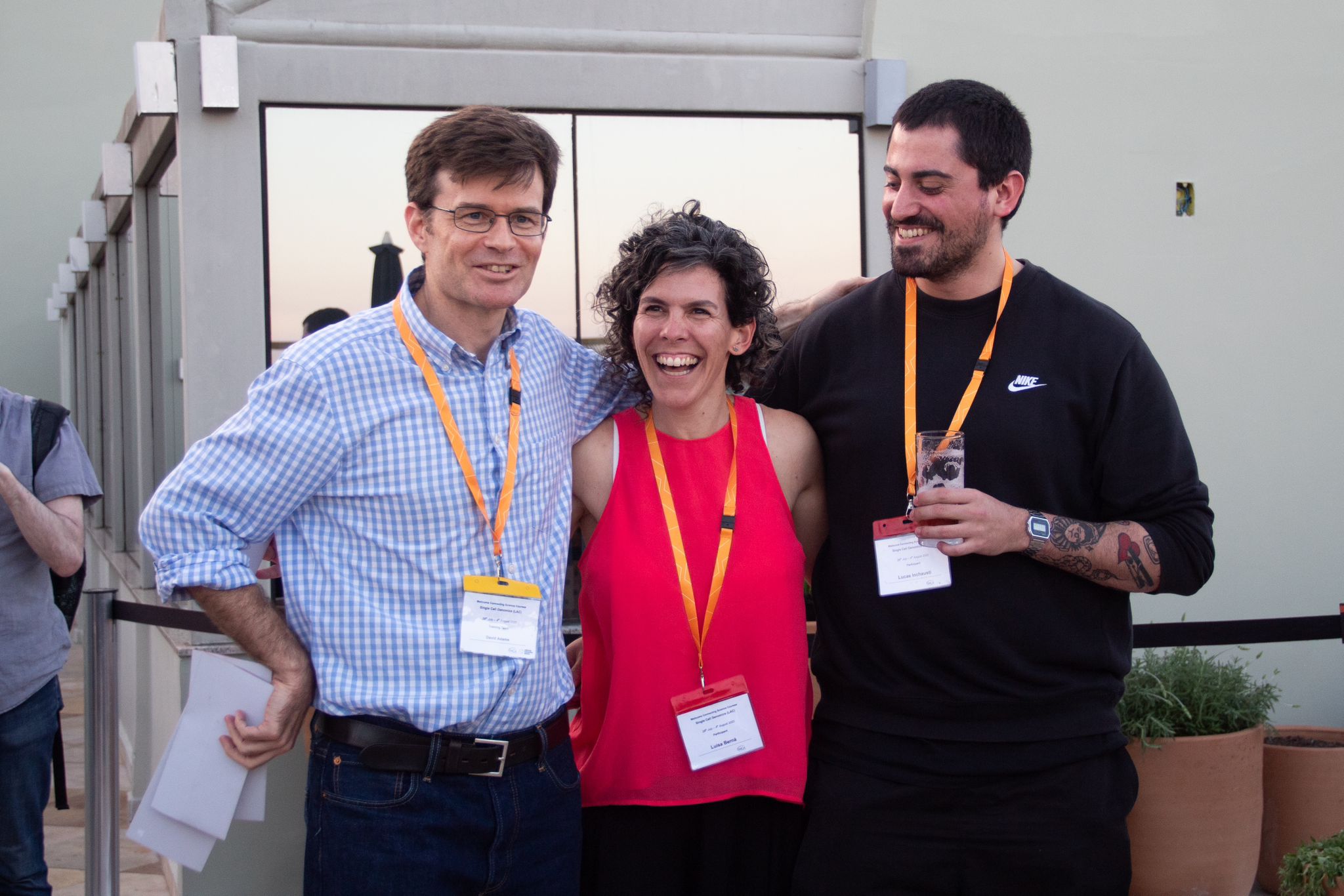
Additionally, there were many subtle yet important details that are a fundamental part of training with Connecting Science. For example, the respect shown to all students, learning how to ask questions effectively, and understanding the value of these questions for everyone involved.
What is next for your career or training development?
Caroline: My next steps are to advance my career as a bioinformatician, further develop my skills in working with integrated data, and solidify my research focus.
Luisa: I plan to continue my research, leveraging the new contacts and ideas I have gained. Additionally, I am considering developing new courses to offer through Connecting Science and within my institute, aimed at strengthening the skills and knowledge of the next generation of researchers.
What came next for our growing community in Latin America?
In July 2024, we were delighted to co-host Single Cell Genomics training for a second time at the Instituto Nacional de Câncer (INCA), followed by a brand new Symposium, specifically designed to connect communities and advance research across Latin America.
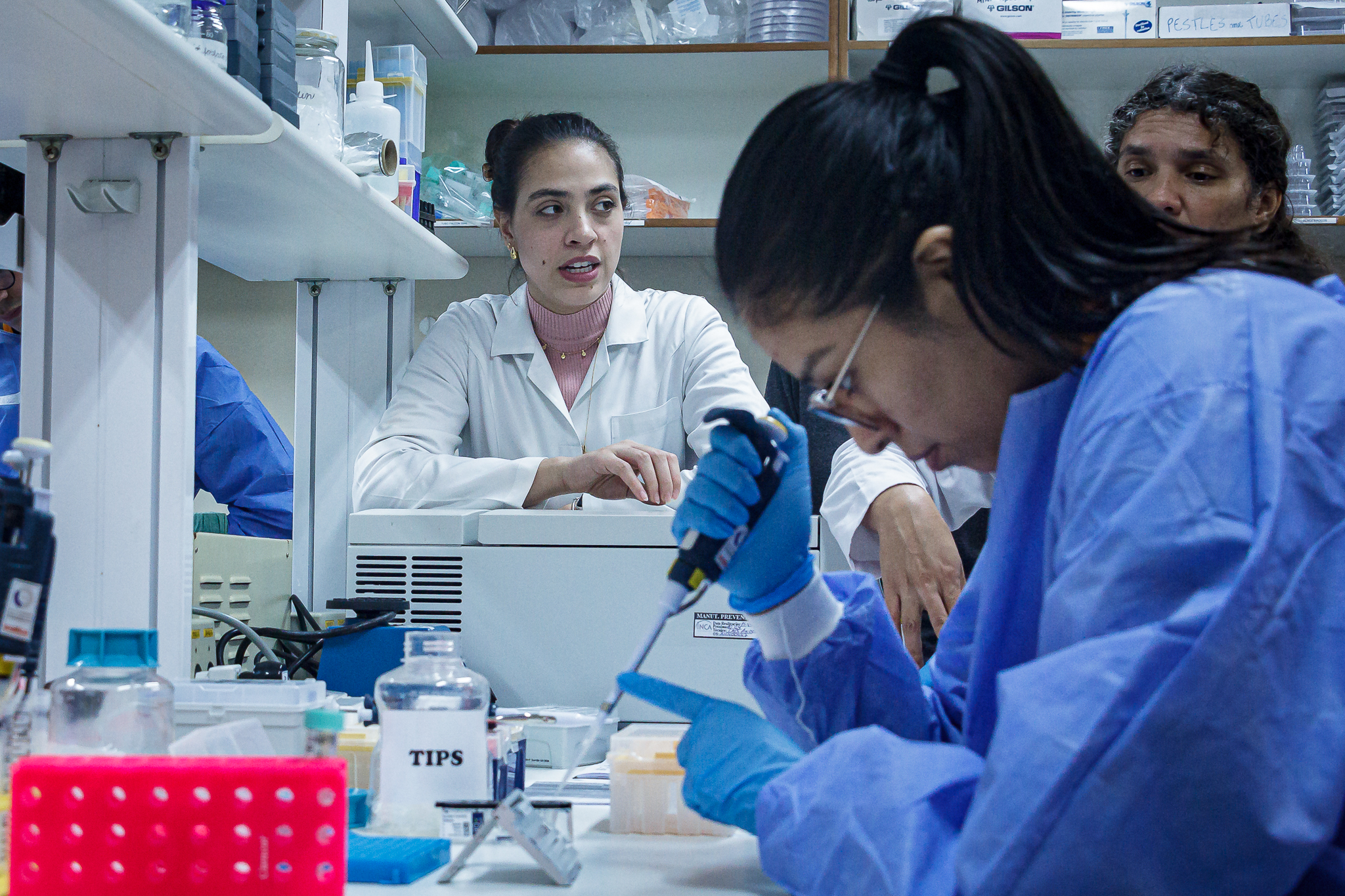
The Symposium, organised by INCA in collaboration with Connecting Science and sponsored by the Chan Zuckerberg Initiative (CZI), brought together 100 participants, including members of the scientific committee, speakers, students and faculty from the both the 2023 and 2024 iterations of the Single-cell Genomics course. Attendees represented various Latin American countries, including Brazil, Argentina, Chile, Peru, Colombia, Venezuela, Mexico, Panama, and Costa Rica, along with participants from the UK and Canada.
The primary objective was successfully achieved: to unite Latin American researchers for further learning and collaboration focusing on the latest approaches in single-cell genomics, across various diseases and health contexts, while addressing specific regional challenges and opportunities. Crucially, this interactive Symposium supported capacity building and infrastructure development to initiate new, and facilitate existing, projects in the field of single-cell genomics.
Over two days, the event featured presentations from invited scientists, “flash talks” by students showcasing current research projects, poster sessions, and roundtable discussions; enabling dynamic knowledge sharing and networking.
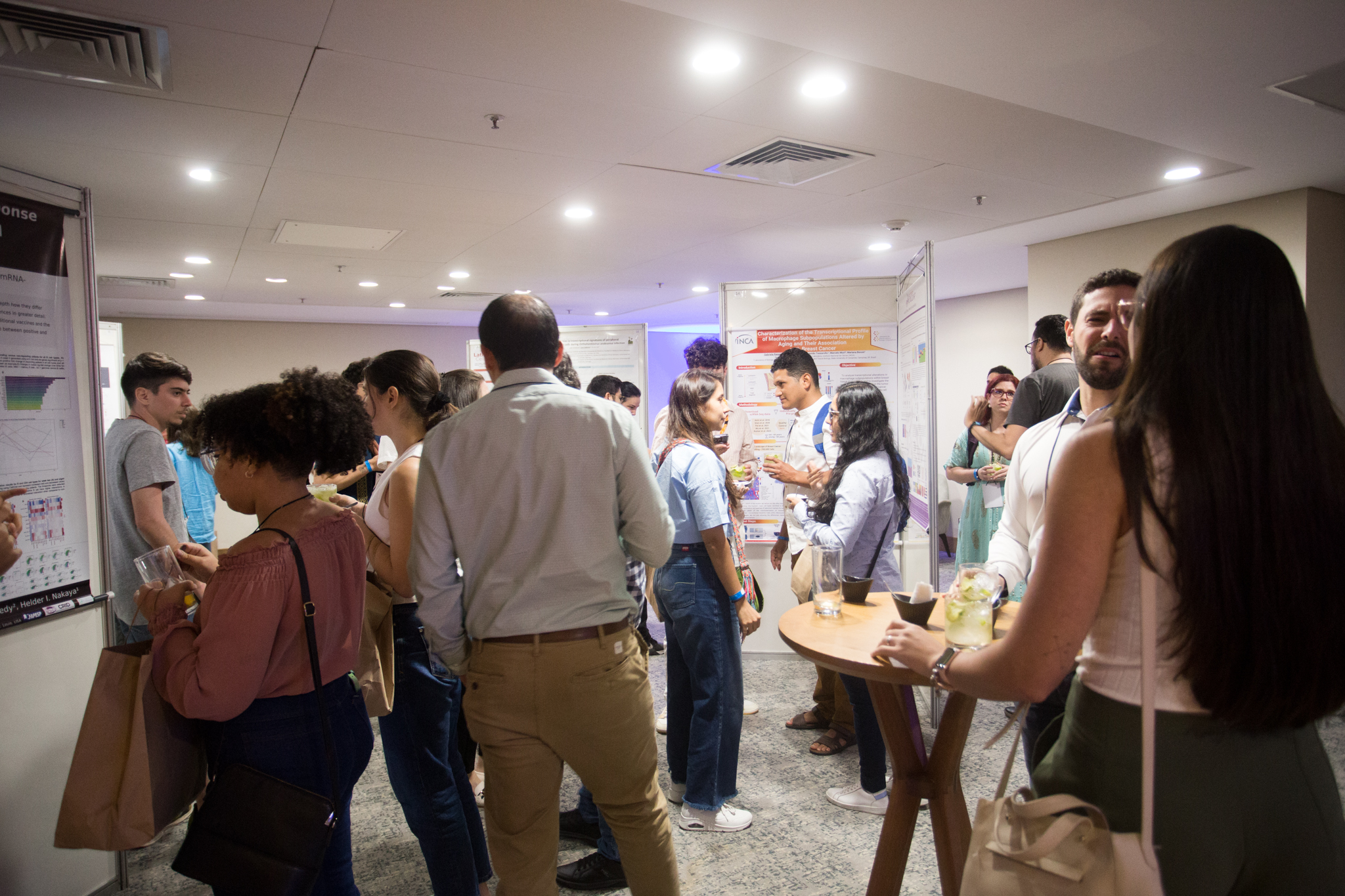
The roundtables focused on the key issues needing to be addressed to advance single-cell research in the region, such as improving data management and sharing, and establishing collaborative networks across Latin America. The event concluded with a workshop, where participants collectively identified and reflected on regional challenges and potential solutions, laying the groundwork for actions that will elevate the prominence of Latin American scientists in the field of single-cell genomics.
Collaboration: the heart of impactful training
Training that makes a genuine contribution to careers and research, benefitting the populations it’s intended to serve, is only possible through collaboration and a generous sharing of resources. We would like to thank our partners: the Instituto Nacional de Câncer (INCA), Patricia Possik, an investigator at INCA, Mariana Boroni, an associate researcher at INCA, and colleagues from the Wellcome Sanger Institute, for their continued support of our activities in Latin America. We would also like to thank the Chan Zuckerberg Initiative (CZI), for providing sponsorship that enabled our 2023 course participants to travel to the UK to attend our Single Cell Biology 2023 conference.
How to get involved
If you’re interested in applying for our training opportunities in Latin America, check out our list of global training events on our website. While some events may currently be closed for applications, new opportunities in the region are offered throughout the year. Stay updated by subscribing to our bi-monthly newsletter or following our monthly LinkedIn announcements.
With thanks to the photographer commissioned by Instituto Nacional de Câncer (INCA) who supplied the photography taken during the 2023 and 2024 Single Cell events, held at the facilities kindly provided by INCA, in Brazil.
